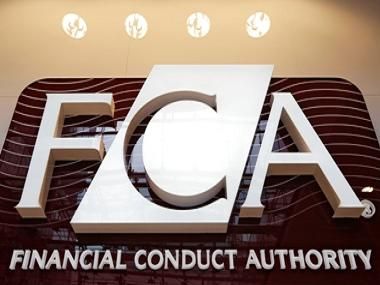The UK Financial Conduct Authority has stunned banks with a sweeping draft request for data on thousands of bond and equity deals going back over the past five years.
The proposed request is part of the FCA’s probe of competition in the investment banking industry launched in May and asked bankers to respond to the feasibility of the wide-ranging initiative.
In it, the regulator asks banks for 37 data points on new issues, including investor order sizes, final allocations and pitch documentation - even for deals they failed to win.
The UK watchdog is training its spotlight on a sector that generates considerable fees, and more than a few bankers have been taken aback by the potential scale of the demands.
“The scope was very broad, asking us what we could provide, whether it’s reasonable and possible,” one senior debt banker told IFR.
“Let’s see what they come out with.”
Sore spots
The FCA announced in February that it would look into the fairness of competition, including how banks decided on the allocation of new bond and equity issues, and published the terms of reference of a market study in May.
Smaller investors have often complained that they lose out on the most popular new issues, saying dealers give preference to their biggest buy-side clients.
But bankers on both the debt and equity sides insist the process is a fair one.
Whether or not that is accurate, however, there is no question that the watchdog’s investigation has generated real concern in the industry about potential pitfalls ahead.
For one thing, bankers say, the sweeping potential demands of the FCA could require substantial resources to fulfil.
One official told IFR his bank might have to provide details on more than 13,000 bond issues, possibly also including deals from European borrowers that were sold into the US market.
It also seems to be particularly vexing that the regulator is considering demanding information about deals on which banks didn’t finally end up with a mandate.
“I think in a lot of cases, banks just won’t have the information,” the first banker said.
Banks could also struggle to guarantee client confidentiality if forced to hand over all this information to the FCA, which is subject to freedom of information requests.
Talking it over
Officially, the International Capital Market Association says that it is not troubled by the review, though ICMA’s primary markets practice group was to discuss the matter on Friday.
“Were something untoward to be found out by this review, I would be surprised,” Ruari Ewing, a director at banking lobby group ICMA told Reuters when the FCA market study was published in May.
The FCA will meanwhile hold a series of meetings with the industry to discuss its findings, and a spokesperson said it hoped to do that by the autumn.
The watchdog’s report will be published with interim findings at the turn of the year, and a final report will come out in the spring of 2016.
But many in the industry are privately cautioning that the regulator is attempting a one-size-fits-all approach that doesn’t match the reality of how origination actually works.
“There is a big difference between a big M&A corporate deal, for example, and a two-year floating rate note for a bank,” another debt banker told IFR.
“I think many will argue they should use a more targeted approach - and look at a sample of deals.”
(Reporting by Helene Durand, Alex Chambers)
EU report proposes EU-wide deposit insurance by 2017 - Reuters
European Union savers should have their deposits guaranteed against a bank default by an EU-wide guarantee that would complement by mid-2017 existing national schemes, the presidents of five EU institutions proposed in a report to be published on Monday.
EU states are already obliged to protect bank deposits up to 100,000 euros ($113,500), but with several credit institutions underperforming and growing fears of Greece defaulting in a move that could hurt its banks, this guarantee may not be enough.
To prevent European taxpayers from being forced to rescue banks as happened after the financial crash of 2008, European Commission President Jean-Claude Juncker, in report prepared with among others European Central Bank chief Mario Draghi, proposed a European Deposit Insurance Scheme.
Its initial form may be that of an EU “re-insurance system” for national deposit guarantee schemes.
Banks would fund EDIS, according to the plan, adding to the levies already imposed on European credit institutions to set up a bank bailout facility, known as Single Resolution Fund (SRF).
The proposal, which will be part of a report to be reviewed by EU leaders this week, includes changes to the SRF so that it could benefit from a backstop provided by the 500-billion-euro euro zone bailout fund until 2024, when the SRF target capital of 55 billion euros is expected to be fully covered by banks.
The euro zone bailout fund, know as the European Stability Mechanism, would provide emergency loans to the SRF in case its capital proved not enough to bail out a bank. The plan makes clear that banks would pay back the loans.
The ESM itself is under review by the EU leaders, who want the fund to be able to recapitalise ailing banks with a more straightforward procedure than currently foreseen.
The aim is to break a vicious circle seen in the crisis when cash-strapped states bailed out weak banks, which were in turn heavy buyers of that government’s bonds as they fell in value.
To further cut this “doom loop”, the report said, EU leaders should in time review the treatment of bank exposures to sovereign debt “for example by setting large exposure limits”.
(Compiled by Alice Gledhill)
